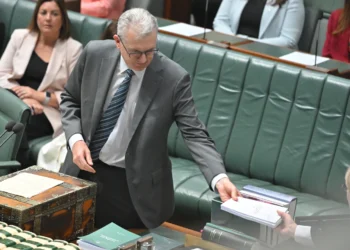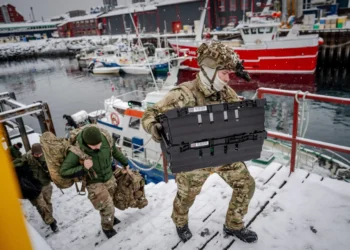OTTAWA (Realist English). Canadian Prime Minister Mark Carney announced sweeping new trade measures on Thursday to protect Canada’s steel and aluminium industries, including a 100 per cent tariff on non-U.S. imports and potential adjustments to existing U.S.-focused countermeasures, following what Ottawa calls a “catastrophic” escalation in American tariffs.
The move follows President Donald Trump’s June 4 decision to double U.S. tariffs on Canadian steel and aluminium from 25 to 50 per cent — a blow to Canada’s export-driven metals sector, which supplies nearly a quarter of U.S. steel imports and roughly half of its aluminium.
Carney said Canada would reassess its 25 per cent counter-tariffs on U.S. imports by July 21, depending on the outcome of talks launched with Washington earlier this week during the G7 summit in Kananaskis. The leaders agreed to pursue a new economic and security deal within 30 days.
“We must protect our industry,” Carney said in Ottawa. “If we don’t, third-country steel floods in. These quotas are about economic security.” While unnamed, the restrictions are widely seen as targeting Chinese metal exports, which are already subject to a 25 per cent surtax in Canada.
Finance Minister François-Philippe Champagne said the new trade barriers were essential to “stabilise the domestic market and prevent trade diversion” triggered by U.S. instability. In addition to quotas and tariffs, Ottawa will prioritize domestic steel and aluminium procurement for infrastructure, defence, and automotive sectors.
The Canadian steel industry employs 23,000 people directly and supports over 100,000 indirect jobs, contributing C$15bn ($11bn) to the economy, according to the Canadian Steel Producers Association. Its president, Catherine Cobden, called Trump’s tariff hike “catastrophic”, warning it would force layoffs and production shutdowns.
Carney stressed that the new measures are temporary and meant to sustain the industry during negotiations with the White House. “A 25 per cent tariff is difficult, but a 50 per cent one is catastrophic,” Cobden said earlier this month.
The escalating tariff war adds to broader tensions over industrial policy and global supply chains, as countries ramp up protectionist measures to secure critical materials and domestic manufacturing capacity.


















